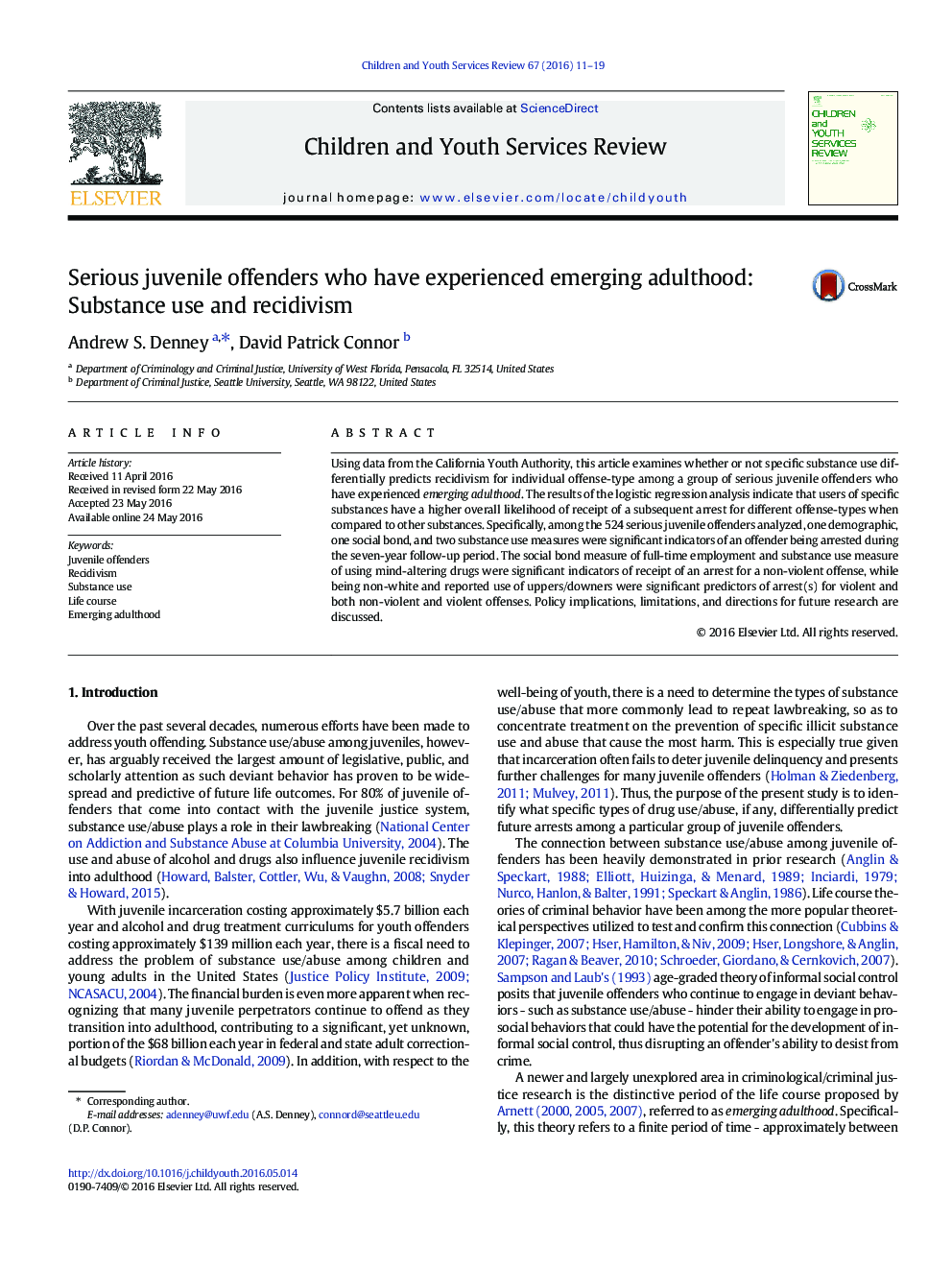| Article ID | Journal | Published Year | Pages | File Type |
|---|---|---|---|---|
| 6833685 | Children and Youth Services Review | 2016 | 9 Pages |
Abstract
Using data from the California Youth Authority, this article examines whether or not specific substance use differentially predicts recidivism for individual offense-type among a group of serious juvenile offenders who have experienced emerging adulthood. The results of the logistic regression analysis indicate that users of specific substances have a higher overall likelihood of receipt of a subsequent arrest for different offense-types when compared to other substances. Specifically, among the 524 serious juvenile offenders analyzed, one demographic, one social bond, and two substance use measures were significant indicators of an offender being arrested during the seven-year follow-up period. The social bond measure of full-time employment and substance use measure of using mind-altering drugs were significant indicators of receipt of an arrest for a non-violent offense, while being non-white and reported use of uppers/downers were significant predictors of arrest(s) for violent and both non-violent and violent offenses. Policy implications, limitations, and directions for future research are discussed.
Related Topics
Health Sciences
Medicine and Dentistry
Perinatology, Pediatrics and Child Health
Authors
Andrew S. Denney, David Patrick Connor,
